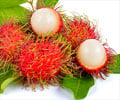A team of researchers has identified more than 100 proteins inside host cells on which influenza depends, in a study on fruit flies.
A study in fruit flies has resulted in the discovery of more than 100 proteins inside host cells on which influenza depends, researchers have revealed.
According to researchers, led by Howard Hughes Medical Institute investigator Paul Ahlquist and colleague Yoshihiro Kawaoka at the University of Wisconsin-Madison, these proteins might serve as potential drug targets to stave off the infection.These targets are the result of a study in which researchers tested the ability of a modified influenza virus to infect fruit fly cells.
"Our findings give us considerable hope that-with a large number of host targets to choose from-we could develop drugs to more stably suppress the virus and not allow the virus to evolve nearly as quickly to generate resistance," Nature quoted Ahlquist, as saying.
Fruit flies are not naturally infected by the influenza virus but researchers knew the fly would be a powerful tool in identifying the genes and proteins that facilitate infection.
A great many fly genes have counterparts in humans, and the researchers could analyze the function of individual fly genes using a technique known as RNA interference.
So, the researchers genetically altered influenza virus so that it could infect cultured fruit fly cells grown in the laboratory and they also added a gene that would produce a telltale fluorescence when the virus successfully replicated in fly cells.
Advertisement
If a gene is important for allowing the virus to replicate, fly cells in which that gene had been shut off would not emit the fluorescent signal signifying infection.
Advertisement
However, researchers wanted to be sure that their findings were relevant for influenza infections that occur outside of the laboratory and therefore, they tested the ability of natural strains of the virus to infect mammalian cells lacking three of the genes they had identified in the fruit fly cells.
The genes they chose participate in three different cellular processes known to be involved in the life cycle of the virus.
They found that suppressing the function of any of the three diverse genes - called ATP6V0D1, COX6A1 and NXF1 - thwarted viral replication.
The researchers also tested how blocking these genes might affect infection with other viruses, and found that all three genes were influenza-specific.
Suppressing them did not affect replication of two other viruses they tested.
Ahlquist, thus, said that the influenza virus functions in a way that is distinct from the other viruses and that may offer a prime target for influenza-specific antiviral drugs.
The study is published in an advance online publication of the journal Nature.
Source-ANI
RAS/K














